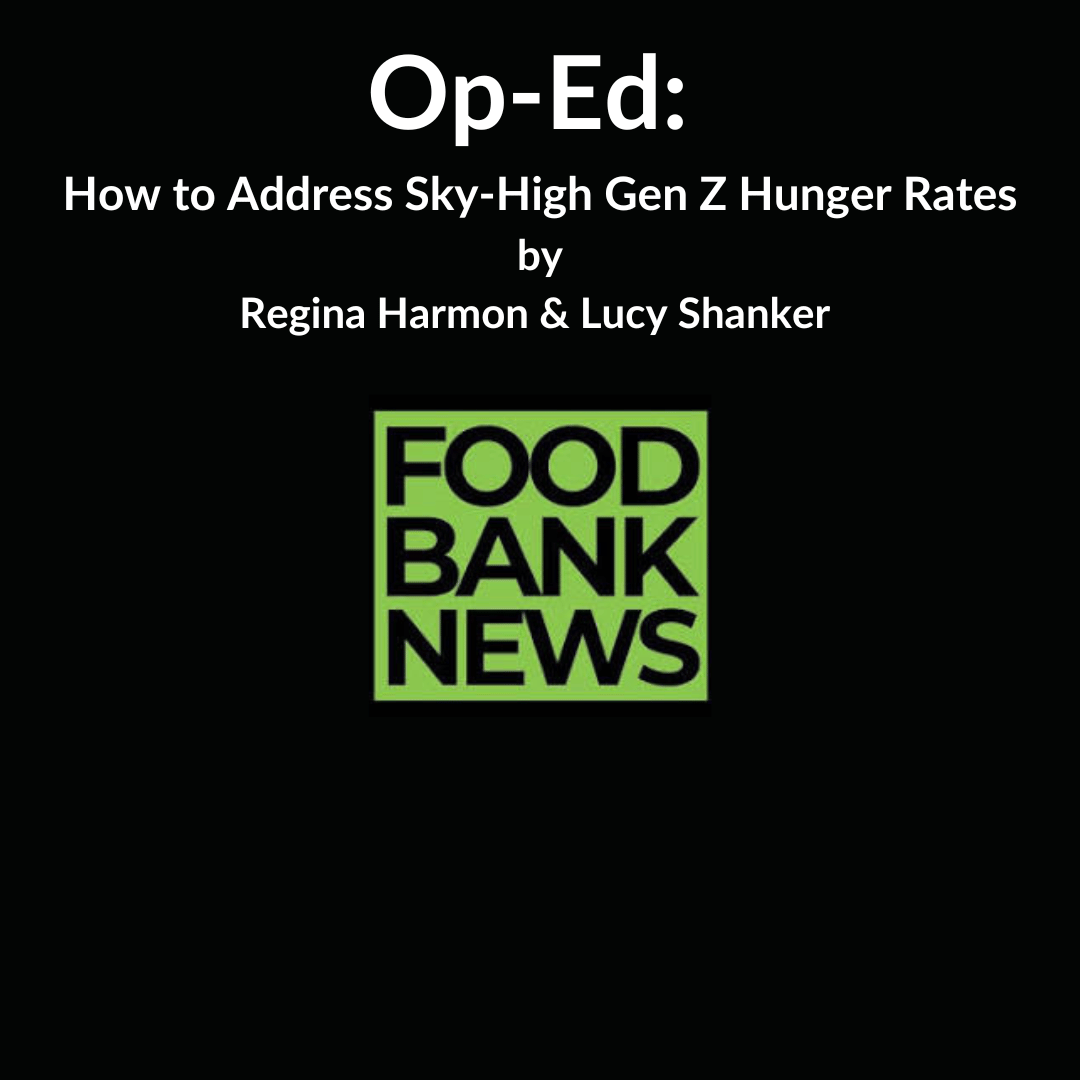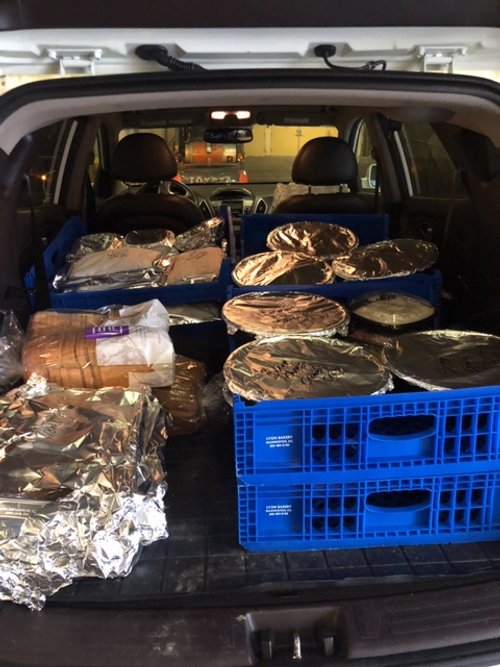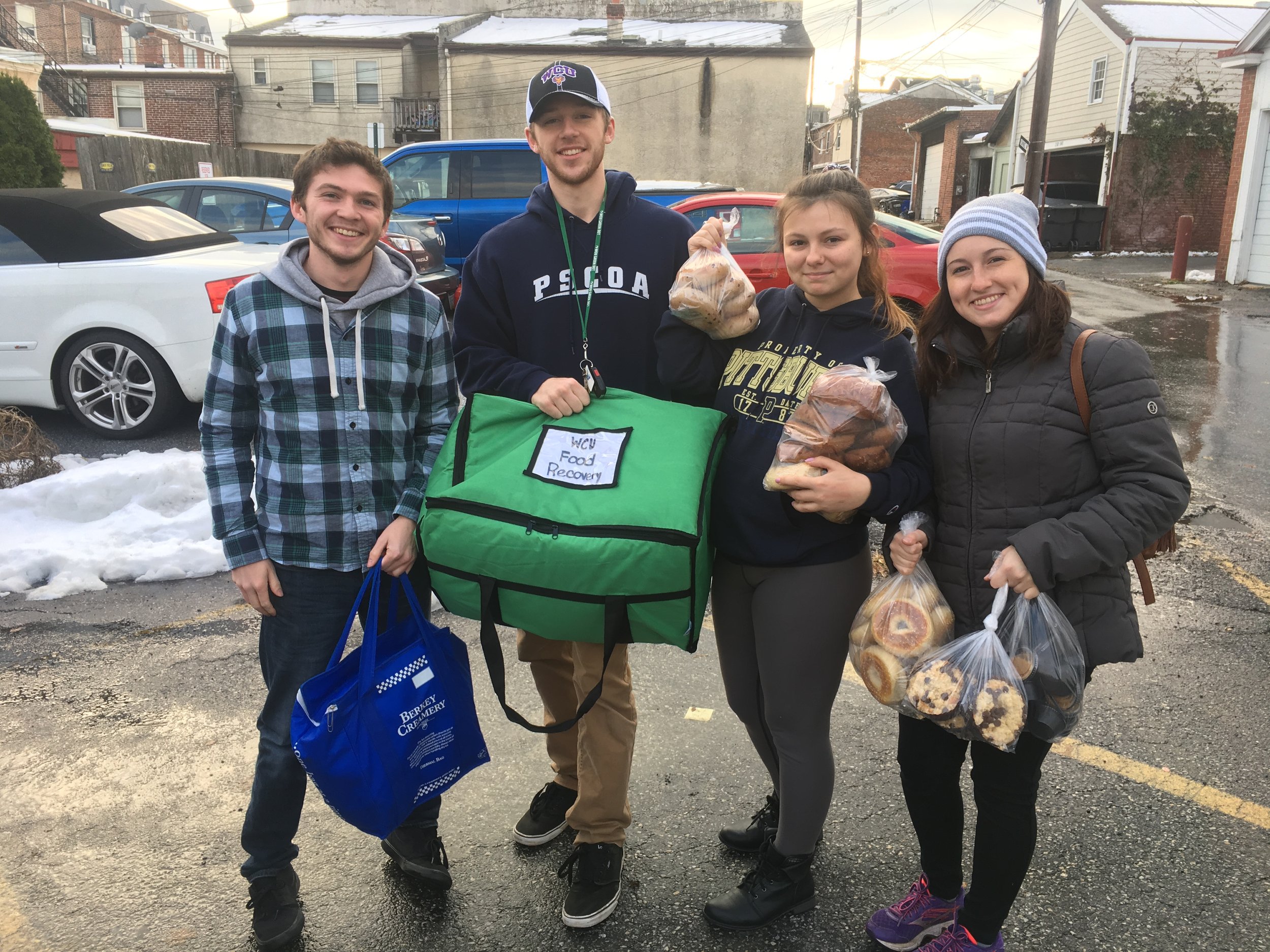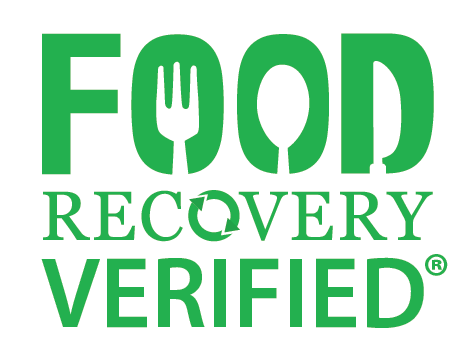In 2019 Food Recovery Network (FRN) launched a partnership with the National Association of REALTORS® (NAR) which continues to evolve and thrive year after year.
It all began when NAR’s CEO, Bob Goldberg, searched for a way to ensure that all surplus food from NAR events would be donated to feed people. He had learned about FRN through a personal connection at the University of Maryland College Park (where FRN was founded) and asked for our help to put a food recovery plan in place for an upcoming event. Naturally, we obliged!
It was April 2019, and NAR was planning its annual REALTORS® Legislative Meetings and Trade Expo at the Wardman Marriott Park hotel in Washington, DC. Our team members were thrilled to learn that the chef at Marriott was fully committed to reducing food waste, and did his part to save surplus food that could be donated from the event. On the day of the recovery, FRN sent one team member over to the hotel to pick up and deliver 70 pounds of surplus food, approximately 58 meals, to Charlie’s Place, a local hunger-fighting partner that provides meals and essential support to houseless people in the city.
That first event was incredibly successful and showed the potential to build and strengthen our partnership, so we set our sights on a second event, then a third. Since 2019, FRN’s food recovery support for NAR has grown steadily to include food recovery support for an average of 10 NAR and affiliate member events per calendar year.
After building a solid foundation through our event work, FRN’s partnership with NAR has grown to include elements of education, awareness, and advocacy. In 2021, FRN’s Executive Director, Regina Anderson, hosted an insightful conversation with Bob Goldberg and Dr. Jessica Lautz, VP of Demographics and Behavioral Insights at NAR, about the correlation between housing access and food insecurity. NAR produced a formal report on this topic last year to highlight the struggles for affordable housing and food security, how they are connected, and what we can all do to diminish those struggles for millions of people across the United States.
“Powerful partnerships like the one FRN and NAR have fostered ensures people have access to the food they deserve. It’s important that people can see themselves as part of a simple solution to changing the current process of tossing perfectly good food to one of recovering good food and ensuring it can go to those experiencing hardship.”
With NAR, FRN has organically developed an all-encompassing collaboration that continues to flourish because our organizations share a deep commitment to doing what we can to distribute food and to support the 42 million people across the U.S. who don’t have sufficient or consistent access to food. Thank you, NAR, for your incredible leadership and support over the years. We are so grateful to be in partnership with you, tackling large-scale and complex problems together.
We’ve accomplished so much together, and on our three-year anniversary, we can’t help but reflect on all the wonderful milestones we’ve hit!
May 2019 - NAR’s first Food Recovery Verified (FRV) event results in 70 pounds of food donated to Charlie’s Place in Washington, DC
August 2019 - NAR’s CEO, Bob Goldberg, calls on REALTORS to donate surplus food from their events, resulting in 200 affiliate members signing a pledge
December 2019 - FRN & NAR celebrate the impact of their first year of partnership: 7 national and affiliate member events, 309 pounds of surplus food recovered, 258 meals served, 7 communities impacted
March 2020 - In-person events paused as the COVID-19 pandemic sent the nation into lockdown
June 2021 - NAR hosts their first in-person event as COVID-19 restrictions are lifted, resulting in the recovery of 430 pounds of surplus food for St. Matthew’s House in Marco Island, FL
August 2021 - NAR & FRN discuss the link between affordable housing and food insecurity
November 2021 - NAR produces a formal report that links affordable housing to food insecurity
December 2021 - FRN & NAR celebrate the impact of another year of partnership: 8 national and affiliate member events supported, 4,170 pounds of surplus food recovered, 3,475 meals served, 9 communities impacted
February 2022 - NAR sponsors FRN to recover 1,900 pounds of surplus food from Guy Fieri’s Superbowl Tailgate event in Los Angeles, CA
September 2022 - FRN + NAR recover surplus food from their 20th event, resulting in the recovery and donation of 317 pounds of surplus food for the Hollywood Food Coalition and Union Rescue Mission in Los Angeles, CA
November 2022 - NAR + FRN share resources and information for Hunger & Homelessness Awareness Week
December 2022 - FRN + NAR celebrate their third year of partnership: 13 national and affiliate member events supported, 2,764 pounds recovered, 2,303 meals served, 12 communities impacted
Total impact 2019-2022 → 7,488 pounds of surplus food recovered, equivalent to 6,240 meals donated!
























